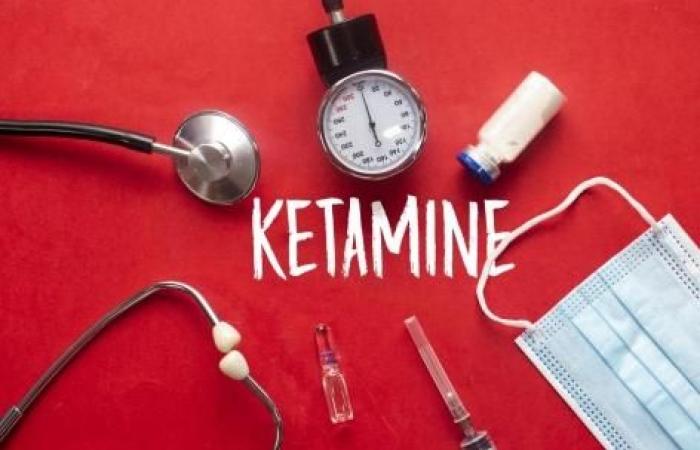THE ESSENTIAL
- When ketamine is administered by injection or nasal spray, it causes side effects (a feeling of choking, sedation and an increase in blood pressure).
- Ketamine extended-release tablets, at a high dose (180 mg), reduced symptoms in adults with treatment-resistant depression.
- Tolerance to the drug was good, “with no change in blood pressure”. Participants still reported some side effects (headache, dizziness and anxiety).
For people with treatment-resistant depression, the anesthetic drug ketamine offers hope. Problem: it has side effects, such as a feeling of suffocation, sedation, increased blood pressure. Additionally, access to it can be expensive. However, researchers from the University of Otago (United States) recently indicated that “the safety and tolerability of ketamine could be improved if it is administered orally, in the form of a sustained-release tablet (R-107), compared to other routes of administration.” The American scientists therefore collaborated with other experts from Australia, Singapore, Taiwan, New Zealand and the United Kingdom to conduct a randomized controlled trial testing the effectiveness of ketamine tablets for treating severe depression compared to placebo.
168 depressed patients received sustained-release ketamine tablets or placebo
As part of their study, published in the journal Nature Medicine, the team recruited 168 adults for whom usual antidepressant treatment had repeatedly failed. The participants were divided into five groups. Four received different doses of ketamine in the form of sustained-release tablets (30, 60, 120 or 180 mg) and one received a placebo twice a week for 12 weeks. Here, “only a tiny amount is released into the bloodstream at a time, with a slow, continuous release over the days,” Colleen Loo, co-author of the research.
During the randomized phase of the trial, most volunteers took their medication at home. “Rather than having to go to the clinic to get an injection and benefit from two hours of medical follow-up, once or twice a week, it is much more practical and allows patients to follow their treatment at home” , said the researcher. Data were assessed by the magnitude of reduction in a patient’s MADRS score. Simply put, it is a measure of depression symptoms, where the higher the score, the more severe the depression.
Severe depression: ketamine in the form of sustained-release tablets reduces symptoms
The results showed that patients receiving the highest dose of ketamine (180 mg) had the best results compared to placebo. In detail, among volunteers who received 180 mg of ketamine, the average reduction in the MADRS score fell by 14 points compared to a maximum of 30. In the placebo group, the average reduction was 8 points. All people who had 120 mg, 60 mg and 30 mg of ketamine had slightly better results than the placebo.
“Tolerability was excellent, with no changes in blood pressure, with few reports of sedation and dissociation. The most common adverse reactions were headache, dizziness and anxiety. R-107 tablets were effective , safe and well tolerated in a population of patients suffering from severe depression”, can we read in the conclusions of the work.







